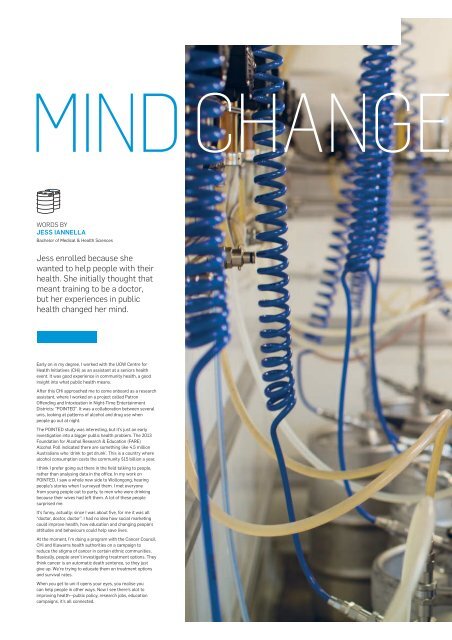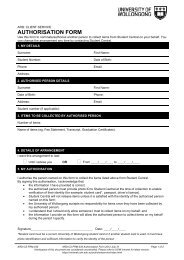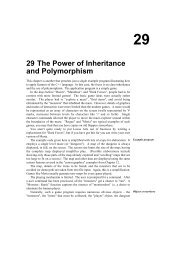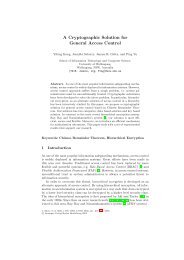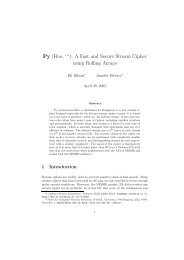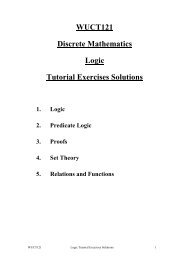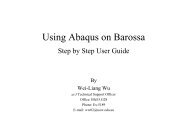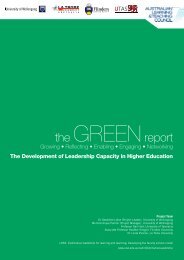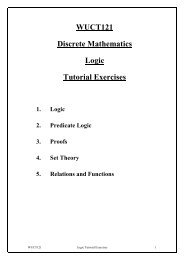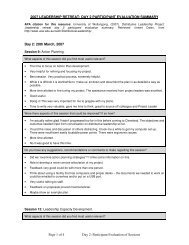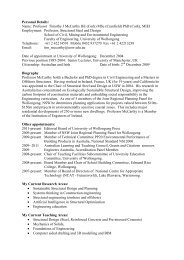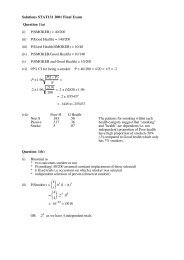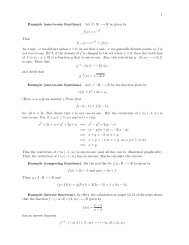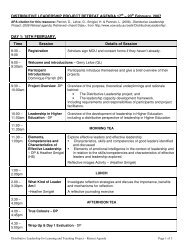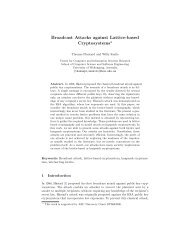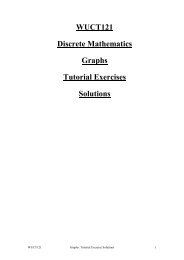UNI SPK - University of Wollongong
UNI SPK - University of Wollongong
UNI SPK - University of Wollongong
Create successful ePaper yourself
Turn your PDF publications into a flip-book with our unique Google optimized e-Paper software.
MinD CHAnGER<br />
WORDS bY<br />
JESS IANNELLA<br />
Bachelor <strong>of</strong> Medical & Health Sciences<br />
Jess enrolled because she<br />
wanted to help people with their<br />
health. She initially thought that<br />
meant training to be a doctor,<br />
but her experiences in public<br />
health changed her mind.<br />
Early on in my degree, I worked with the UOW Centre for<br />
Health Initiatives (CHi) as an assistant at a seniors health<br />
event. It was good experience in community health, a good<br />
insight into what public health means.<br />
After this CHi approached me to come onboard as a research<br />
assistant, where I worked on a project called Patron<br />
Offending and Intoxication in Night-Time Entertainment<br />
Districts: “POINTED”. It was a collaboration between several<br />
unis, looking at patterns <strong>of</strong> alcohol and drug use when<br />
people go out at night.<br />
The POINTED study was interesting, but it’s just an early<br />
investigation into a bigger public health problem. The 2013<br />
Foundation for Alcohol Research & Education (FARE)<br />
Alcohol Poll indicated there are something like 4.5 million<br />
Australians who ‘drink to get drunk’. This is a country where<br />
alcohol consumption costs the community $15 billion a year.<br />
I think I prefer going out there in the field talking to people,<br />
rather than analysing data in the <strong>of</strong>fice. In my work on<br />
POINTED, I saw a whole new side to <strong>Wollongong</strong>, hearing<br />
people’s stories when I surveyed them. I met everyone<br />
from young people out to party, to men who were drinking<br />
because their wives had left them. A lot <strong>of</strong> these people<br />
surprised me.<br />
It’s funny, actually: since I was about five, for me it was all<br />
“doctor, doctor, doctor”. I had no idea how social marketing<br />
could improve health, how education and changing people’s<br />
attitudes and behaviours could help save lives.<br />
At the moment, I’m doing a program with the Cancer Council,<br />
CHi and Illawarra health authorities on a campaign to<br />
reduce the stigma <strong>of</strong> cancer in certain ethnic communities.<br />
Basically, people aren’t investigating treatment options. They<br />
think cancer is an automatic death sentence, so they just<br />
give up. We’re trying to educate them on treatment options<br />
and survival rates.<br />
When you get to uni it opens your eyes, you realise you<br />
can help people in other ways. Now I see there’s alot to<br />
improving health—public policy, research jobs, education<br />
campaigns, it’s all connected.


